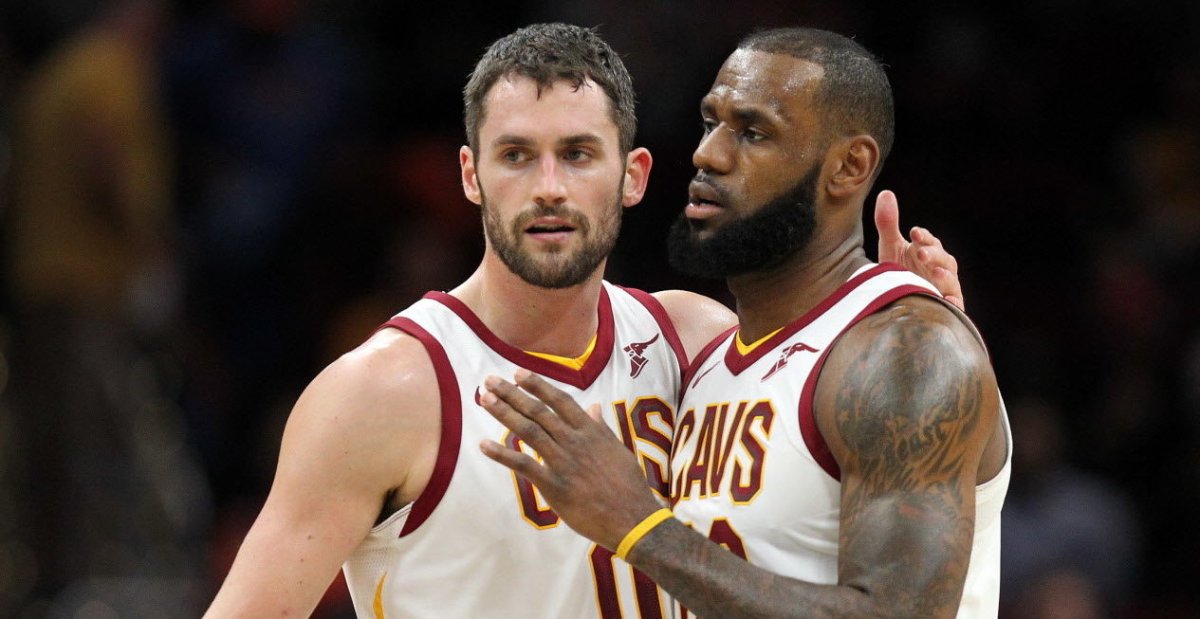On Tuesday morning, The Players’ Tribune released an article written by Cleveland Cavaliers big man Kevin Love. In his column, the former UCLA standout revealed that he suffers from panic attacks at times — an ailment that forced him to leave a game in November. After reading the piece, LeBron James decided to send out a supportive message to his teammate.
“You’re even more powerful now than ever before @kevinlove!!!,” James wrote in his tweet. “Salute and respect brother!”
In his story, Love, now 29 years of age, noted that he suffered his first panic attack in the third quarter of a loss to the Atlanta Hawks on November 5. Shortly after halftime, Love’s symptoms, which included dizziness, shortness of breathe and an accelerated heart rate, worsened. Cavs head coach Tyronn Lue had his team huddled near the bench for a timeout, but Love was having a hard time staying focused.
“By that point, I was freaking out,” Love continued. “When I got up to walk out of the huddle, I knew I couldn’t reenter the game — like, literally couldn’t do it physically.”
After a brief discussion with coach Lue, Love tried to make his way to the Cavs’ locker room. He was later escorted to Cleveland Clinic for medical evaluations.
“I was running from room to room, like I was looking for something I couldn’t find,” Love noted. “Really I was just hoping my heart would stop racing. It was like my body was trying to say to me, You’re about to die. I ended up on the floor in the training room, lying on my back, trying to get enough air to breathe.”
Love, who is now seeing a therapist, had another panic attack in January, according to a report from Joe Vardon of Cleveland.com.
Though Love does not mention it in his essay, which is titled “Everyone is going through something,” Love told Cavs teammates the reason he left The Q before the end of a loss to Oklahoma City Thunder in January — in which he left the game after three minutes for what the team said at the time was migraines — was because of his panic attacks.
Love made the disclosure during the infamous Jan. 22 team meeting in which Dwyane Wade and Isaiah Thomas challenged him (and the organization) as to why Love not only left before the end of the game, but missed practice the next day.
Love’s decision to open up on this issue is admirable. And while it may be a difficult subject to talk about, his voice could be a paving stone in someone else’s path to recovery.
In Love’s words:
“Mental health isn’t just an athlete thing. What you do for a living doesn’t have to define who you are. This is an everyone thing.”
